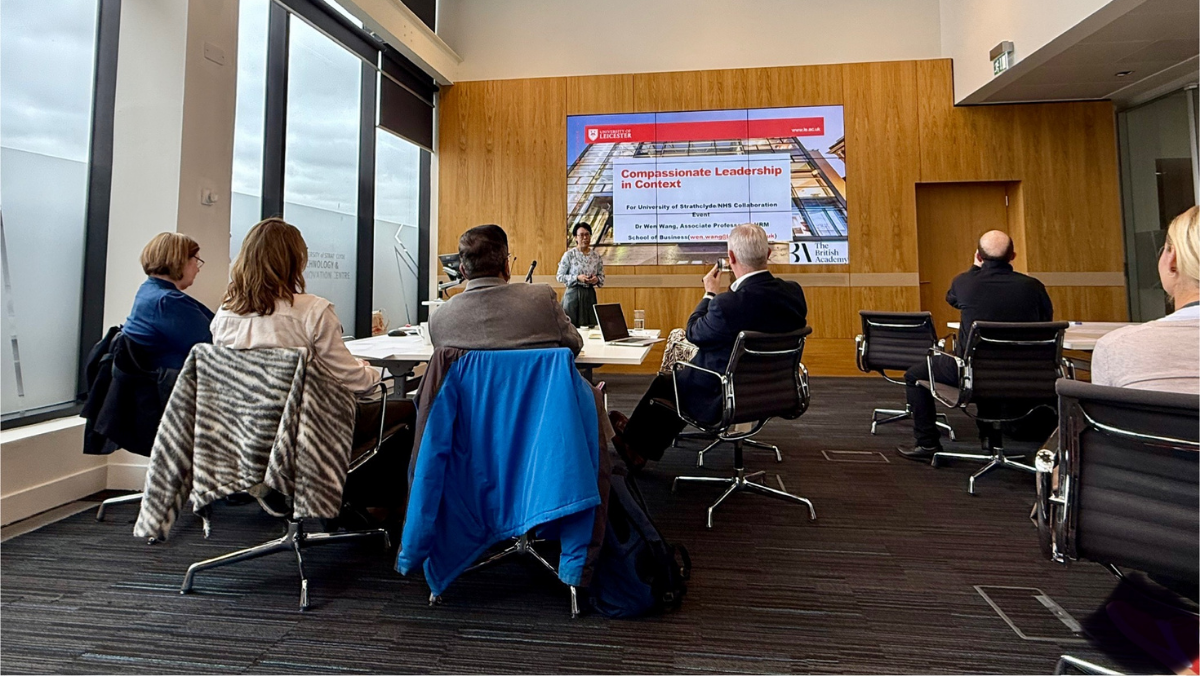
Resident doctors: acting like a leader to become a leader
Dr Wen Wang, Steven Isherwood (ST7 Ophthalmology)
03 October 2025
Thanks to the invitation to share our research with NHS professionals in Scotland at the University of Strathclyde, while we proposed 3Rs (responsiveness, relationship and recognition) for leaders to demonstrate compassionate leadership in context (below) of resident doctors’ retention (Wang et al., 2024). This helps further clarity our research findings to develop leadership among resident doctors.
Leadership skills are a vital part of a medical career and so require intentional ‘steering’ at an early stage. Resident doctors hold many clinical leadership roles in their day-to-day activities even at the foundation level. Despite being less experienced it is important to recognise these roles and actively help develop them in an appropriate manner.
We suggest a strategy for resident doctors to cultivate leadership skills through acting like leaders (Ibarra, 2015) and internalise leadership through the 3Rs: Responsibility, Relationships and Recognition.
Responsibility:
hold yourself responsible for your work session/shift. Prepare to succeed! This mindset means you will do as much as it takes to succeed, including but not exhausted to; planning ahead of time to know what is required of you and may include talking to other colleagues or arriving at work early so that when your shift starts you are ready. By preparing ahead you will be better able to deal with the tasks and fulfil your role in the team. Arriving early and being prepared will show that you can lead by example and help build your reputation as a responsible, professional and organised doctor.
Remember people perceive you from your action, your track record, not what you think what kind of doctors you are.
Relationships:
Relationships are the key to success. Forming good relationships with your work colleagues helps build your ability to gain support from them in various situations. Look for opportunities to develop relationships and make good impressions with colleagues. Various techniques that could be used include introducing yourself to everyone, being punctual and supportive with tasks, checking in with people to see if they are okay, being reliable with your tasks. Even simple gestures like making a cup of tea for a colleague can go a long way in building a stronger team relationship. In many ways, relationships offer your foundation to lead and to succeed. It helps to manage stress and also receive feedback to/from others.
Who you work with is as important for fulfilment as the work you do, with this is mind try and be a great colleague to others.
Recognition:
Recognition of your abilities, your circumstances, your colleagues and your goals. Recognise that there will be a mismatch between the expectations placed on you from patients and what can be offered and the need to develop the necessary skills to communicate and deal with this effectively. Recognise colleagues who are making an effort by saying thank you or writing an email/card. Recognition offers you ‘soft power’ to motivate others to follow your leadership. Recognition of your goals provides you with the forward momentum and ambition to maintain your efforts with a plan in place.
Having a clear vision and goal can help you lead others in the same direction.
The 3Rs are a strategy that have not only helped internalise leadership but also added joy to daily work for many of the resident doctors we interviewed. We hope it works for you.
References
Ibarra, H. (2015). Act like a leader, think like a leader. Harvard Business Review Press
Wang, W., Creese, J., Karanika-Murray, M., Harris, K., McCarthy, M., Leng, C., & King, C. (2024). Can compassionate leadership of senior hospital leaders help retain trainee doctors?. BMJ Leader Published Online First: 27 June 2024. https://doi.org/10.1136/leader-2024-001010